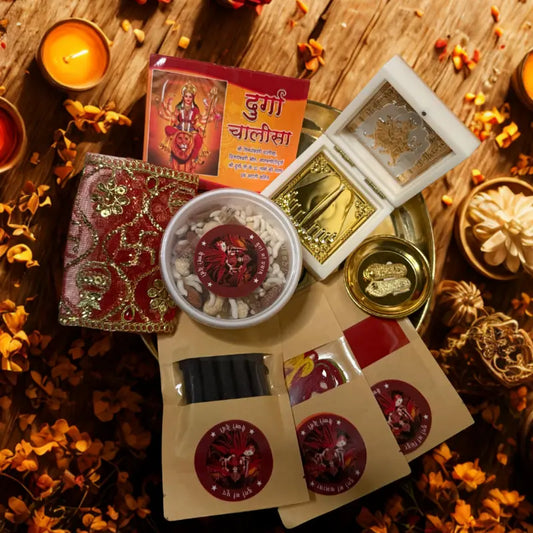
Dussehra and Diwali in Rajasthan: Epic Ramlila, Ravan Dahan and Udaipur Diya Tradition
Share
Rajasthan, the land of vibrant festivals, royal heritage, and timeless traditions, transforms into a spectacle of colours, lights, and devotion during Dussehra and Diwali. From the dramatic enactments of the Ramlila to the spectacular Ravan Dahan and the shimmering Udaipur Diya tradition, these festivals are celebrated with grandeur unlike anywhere else in India. Both festivals embody the eternal victory of good over evil and light over darkness, but in Rajasthan, they also reflect the state’s regal charm and cultural richness.
The Grandeur of Dussehra in Rajasthan
Ramlila: A Living Epic
The Ramlila, a theatrical performance of the Ramayana, is the heart of Dussehra festivities across Rajasthan. Towns and villages come alive with actors portraying Lord Ram, Sita, Lakshman, and Hanuman in open-air stages. The performances often extend over several days, culminating on Dussehra with the triumph of Lord Ram over the demon king Ravana.
The devotion of the audience is palpable; people sit glued to the dramatic retelling, often chanting “Jai Shri Ram” in unison. In cities like Kota and Jaipur, the Ramlila is performed on a grand scale, attracting thousands of devotees.

Ravan Dahan: The Final Victory
The most awaited spectacle of Dussehra is the Ravan Dahan. Huge effigies of Ravana, often accompanied by Meghnad and Kumbhkaran, are erected in open grounds. As the sun sets, these towering figures are set ablaze with fire arrows symbolising the destruction of arrogance, ego, and evil.
In Kota, one of Rajasthan’s most famous Dussehra festivals, the effigies can be as tall as 75 feet. The night sky glows with fireworks as thousands cheer the symbolic burning of negativity. It’s not just a ritual, it’s a reminder of the eternal relevance of dharma in human life.
Diwali in Rajasthan: A Festival of Lights and Royalty
If Dussehra is about victory, Diwali in Rajasthan is about prosperity, joy, and devotion. The state’s palaces, havelis, temples, and streets shimmer with countless diyas and fairy lights, turning cities into golden jewels in the desert.

Udaipur’s Mesmerising Diya Tradition
The Udaipur Diya tradition is legendary. On the night of Diwali, the serene waters of Lake Pichola reflect thousands of clay lamps, creating an otherworldly glow. Locals and tourists alike gather by the ghats to float diyas, making wishes for happiness and prosperity. The City Palace, lit up majestically, overlooks the scene like a guardian of heritage.
This diya-lighting ritual is not just about beauty; it is symbolic of dispelling darkness, ignorance, and despair. Families believe lighting a diya invites the blessings of Goddess Lakshmi into their homes.

Jaipur: The City of Lights
In Jaipur, Diwali is a royal affair. The entire walled city is decorated with lights, and markets like Johari Bazaar and Bapu Bazaar dazzle with festive decorations. The government even organises a contest for the best-decorated market, ensuring every corner is lit with artistic brilliance. Tourists from across the globe visit Jaipur during Diwali just to witness this spectacle.

Jodhpur and Jaisalmer: Desert Glow
In Jodhpur, the blue city glows golden under the Diwali lamps. Families gather to worship Goddess Lakshmi and Lord Ganesha, exchanging sweets and gifts. In Jaisalmer, diyas illuminate the fort walls, blending the desert silence with divine light. The sight of flickering flames against the desert night sky is unforgettable.
Spiritual Significance of Diwali and Dussehra
Both festivals carry profound meaning. Dussehra teaches us the importance of truth, discipline, and the victory of good over evil. It’s about letting go of arrogance and negative habits in our own lives.
Diwali, on the other hand, is the celebration of hope. It marks Lord Ram’s return to Ayodhya after 14 years of exile. It’s also a time to honour Goddess Lakshmi, seeking her blessings for prosperity and success. Lighting diyas symbolises igniting our inner light, spreading positivity, and removing darkness from our minds and souls.
How Rajasthan’s Traditions Stand Apart
- Community Spirit – Both festivals are celebrated collectively. Villages unite for Ramlila, and cities join hands to decorate markets and temples.
- Royal Heritage – Palaces and forts add a regal charm to these festivals.
- Spiritual Depth – The traditions, whether Ravan Dahan or diya floating in Udaipur, are deeply rooted in dharma.
- Tourist Magnet – Rajasthan attracts thousands of international visitors who come specifically to witness these grand celebrations.
Blending Devotion with Tradition
No festival feels complete without devotion, and incorporating sacred elements enhances the spiritual aura. Brands like Dharmik bring this essence into homes through their devotional offerings. From incense cups that purify the air during puja to a beautifully curated Ram Durbar and Ayodhya Prasad Box for auspicious blessings, each product adds meaning to the celebrations. For Diwali, sacred keepsakes like the Ram Amrit Silver Coin, Gold-Plated Lakshmi Ganesh make for timeless gifts that carry blessings of prosperity. Celebrating Dussehra and Diwali with such devotional products adds both spiritual fulfilment and cultural authenticity.
FAQs on Dussehra and Diwali in Rajasthan
Q1. How is Dussehra celebrated in Rajasthan?
Dussehra in Rajasthan is celebrated with Ramlila performances and the grand Ravan Dahan, where huge effigies of Ravana, Meghnad, and Kumbhkaran are burnt. Kota’s Dussehra festival is especially famous for its massive effigies and cultural programs.
Q2. Why is Udaipur’s Diya tradition so special during Diwali?
On Diwali night, Udaipur’s lakes, especially Lake Pichola, glow with thousands of diyas floated by locals and tourists. The reflection of the illuminated City Palace on the water makes this tradition a breathtaking sight unique to Udaipur.
Q3. What makes Diwali celebrations in Jaipur unique?
Jaipur is called the “City of Lights” during Diwali. The entire walled city, including Johari Bazaar and Bapu Bazaar, is decorated with lights. A contest is even held for the best-decorated market, making the celebrations truly dazzling.
Q4. What is the significance of lighting diyas in Rajasthan during Diwali?
Lighting diyas symbolises the victory of light over darkness and invites the blessings of Goddess Lakshmi into homes. In Rajasthan, it’s also a community tradition where families decorate courtyards, temples, and lakes with countless lamps.
Q5. Which cities in Rajasthan are best to experience Diwali and Dussehra?
- Kota – for its legendary Dussehra fair and giant effigies.
- Jaipur – for its illuminated markets and royal celebrations.
- Udaipur – for the mesmerising diya-lighting tradition on lakes.
- Jodhpur & Jaisalmer – for fort and desert-style Diwali celebrations.
Q6. What is the spiritual message of Dussehra and Diwali?
Dussehra reminds us of the victory of good over evil and the need to burn away ego and negativity. Diwali, on the other hand, symbolises new beginnings, prosperity, and the return of light, inspired by Lord Ram’s homecoming to Ayodhya.
Q7. How can one celebrate Dussehra and Diwali at home like in Rajasthan?
You can organise small Ramlila skits, make eco-friendly Ravana effigies, decorate with rangoli and diyas, float lamps in bowls of water to mimic Udaipur’s lakes, prepare traditional sweets, and perform Lakshmi Puja with devotion.
Dussehra and Diwali in Rajasthan are not just festivals—they’re grand cultural experiences that blend devotion, heritage, and community celebration. From the epic performances of the Ramlila and the fiery Ravan Dahan to the serene beauty of the Udaipur Diya tradition, Rajasthan sets the stage for some of the most magical festive moments in India.
These traditions remind us to let go of negativity, embrace light, and honour dharma in every aspect of life. Whether you’re in Rajasthan or celebrating at home, you can bring the same spiritual essence into your space through devotion, rituals, and thoughtful sacred elements. After all, festivals are about creating connections, spreading light, and inviting blessings into our lives.





